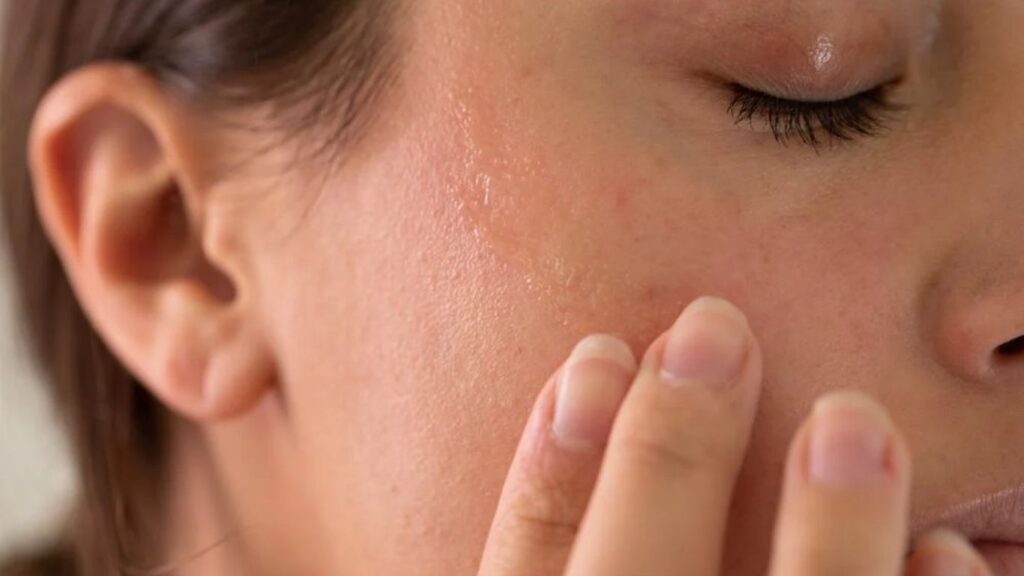Air conditioning (AC) has become a staple in modern homes and workplaces, offering respite from the sweltering heat and enhancing comfort for daily activities and rest. While the cool breeze of an AC can be a delightful relief, it’s important to recognize that this modern convenience might also come with certain health drawbacks. Prolonged exposure to artificially cooled environments can lead to a variety of health issues, some of which might not be immediately apparent. In this blog, we will delve into the top five harmful health effects of prolonged AC exposure, shedding light on how this indispensable modern tool could be subtly undermining our health.
5 Most Harmful Effects of AC on Our Health
1. Respiratory Issues

Air conditioning systems, especially if not regularly maintained, can act as distributors of indoor pollutants such as dust, mold, and other airborne allergens. These systems can pull in external air and recirculate indoor air, allowing allergens to accumulate within the air ducts and filters. When these pollutants are then dispersed throughout a room or building, they can create an environment ripe for respiratory distress. Individuals with conditions like asthma and chronic bronchitis are particularly vulnerable, as their airways are more susceptible to irritation from these particles. The constant exposure to such triggers in air-conditioned spaces can lead to more frequent flare-ups and potentially severe respiratory attacks. Therefore, regular cleaning of AC filters and ensuring proper ventilation is crucial to minimize the circulation of these harmful allergens and protect respiratory health.
2. Skin Dehydration

Constant exposure to air conditioning can severely impact skin health, as the cold, dry air strips away the natural moisture of the skin. This lack of humidity in air-conditioned environments leads to dryness, flakiness, and even irritation or exacerbation of skin conditions like eczema. To combat these effects, it’s essential to incorporate additional hydration methods into your daily skin care routine. Using a robust, nourishing moisturizer that fits your skin type is crucial; opt for products that contain hyaluronic acid or glycerin, which help to retain moisture. Additionally, keeping a hydrating spray handy can provide a quick moisture boost throughout the day. It’s also beneficial to use a humidifier in rooms where you spend a lot of time with the AC on, as this helps to restore the air’s moisture levels and protect your skin from drying out.
3. Allergic Reactions

Air conditioning (AC) systems can inadvertently become breeding grounds for mold and other allergens if not properly maintained. The combination of moisture and a steady supply of dust offers the perfect environment for mold spores to grow, especially in the ductwork and deep within the unit. When the AC is active, these allergens are easily spread throughout the air, exposing everyone in the vicinity to potential allergens.
Common symptoms of allergies caused by exposure to these air-conditioned environments include sneezing, itchy and watery eyes, and skin rashes. Some individuals might also experience respiratory symptoms like coughing and a tight chest, particularly those with sensitive respiratory tracts or pre-existing conditions like asthma. Regular cleaning and maintenance of AC units are crucial to prevent the accumulation and dissemination of these allergens, ensuring a healthier indoor air quality.
4. Fatigue and Illness

Relying heavily on air conditioning to regulate indoor temperatures can have unexpected health consequences, including chronic fatigue and a weakened immune response. The body’s natural ability to adapt to varying temperatures is dulled by constant exposure to uniform, artificially controlled climates. This can disrupt the body’s internal clock, or circadian rhythm, leading to feelings of persistent tiredness and decreased immune efficiency.
Furthermore, regular exposure to natural temperature variations plays a crucial role in strengthening the immune system. It challenges the body to adjust to different conditions, thereby enhancing its ability to respond to various stressors, including pathogens. By spending more time in natural environments or reducing the dependency on AC, individuals can help their bodies recalibrate and boost immune function, thereby improving overall health and vitality.
5. Headaches and Migraine Triggers

Prolonged exposure to air conditioning can sometimes trigger headaches or migraines in susceptible individuals. The cold, dry air that AC units produce can lead to dehydration and the tightening of blood vessels, both of which are common triggers for headaches. Additionally, the strain of adjusting to significant temperature differences when moving between air-conditioned and non-air-conditioned environments can exacerbate these symptoms.
To prevent such occurrences, it is advisable to take regular breaks from air-conditioned environments, stepping into natural air to allow the body to adjust and reduce the potential for temperature-induced headaches. Maintaining proper hydration is also crucial; drinking adequate water can counteract the dehydrating effects of dry, conditioned air. Keeping indoor humidity at a comfortable level using humidifiers can also help mitigate the harsh effects of AC on the body, providing a more headache-friendly environment.
Conclusion
While air conditioning is essential for comfort during hot weather, its prolonged use can lead to several health issues, including respiratory problems, skin dehydration, allergic reactions, chronic fatigue, and even headaches. By understanding these potential risks, we can take proactive steps to mitigate them, such as regular maintenance of AC units, balancing time spent in conditioned air with natural environments, and maintaining proper hydration. It’s crucial to use air conditioning wisely and ensure that our reliance on this modern convenience does not come at the expense of our health
Also read: 6 Ayurvedic Herbs to Clear Clogged Arteries
